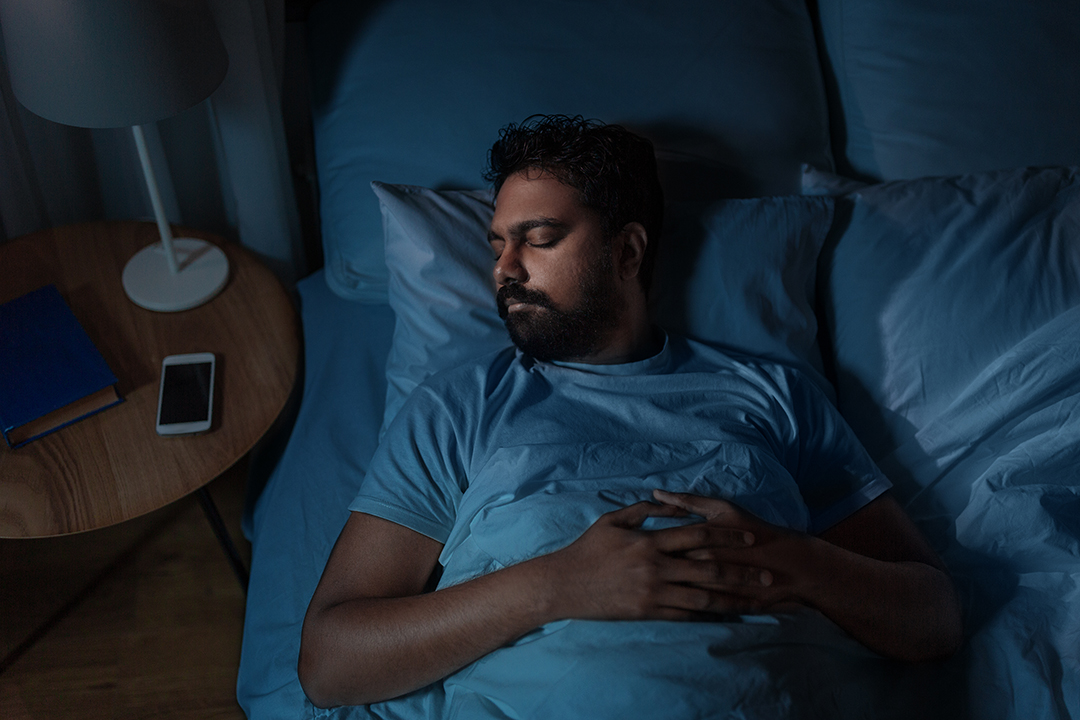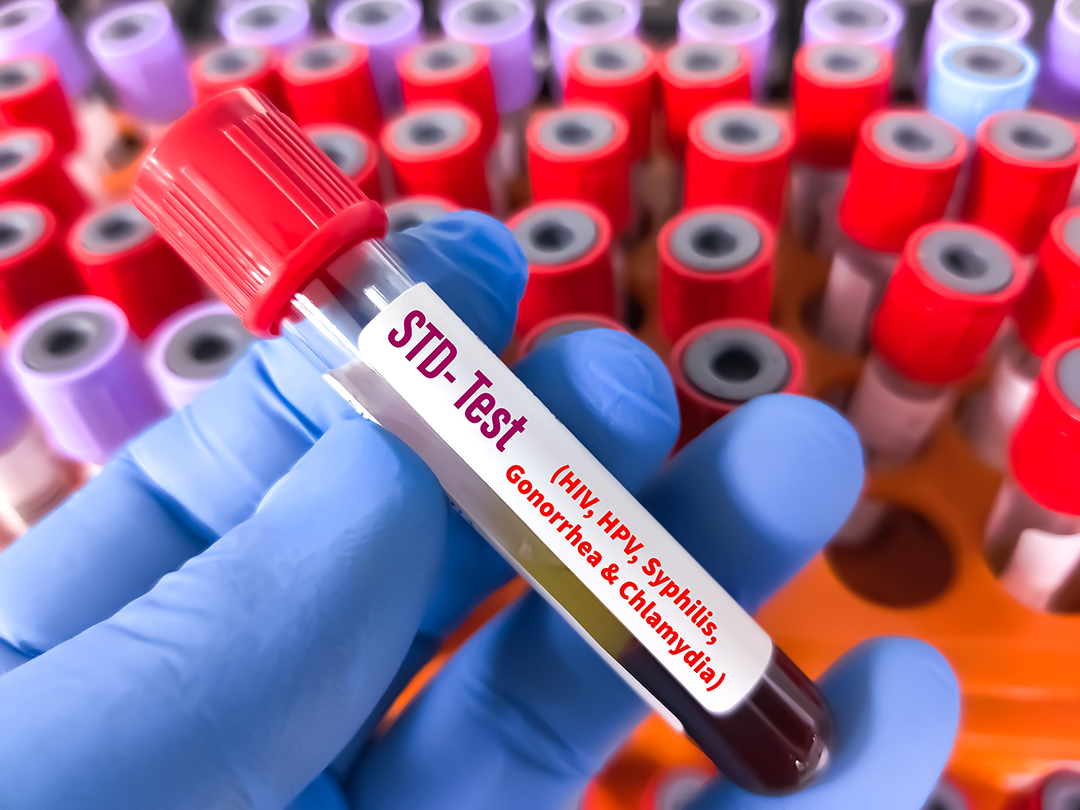Sexual health is a fundamental aspect of overall health and well-being of communities, yet it’s often a subject matter that youths feel uncomfortable discussing openly until a problem arises. To treat them effectively and, most importantly, to prevent them from impacting one’s mental health, it’s very important to identify these common sexual health issues at the earliest.

Erectile Dysfunction (ED):
Erectile dysfunction (ED), also known as impotence, is a common problem when a man finds it difficult in getting and keeping an erection during sexual activity. While occasional instances of ED are normal, frequent problems can indicate underlying health problems that need treatment such as cardiovascular disease, diabetes, or psychological factors like stress and anxiety. Medications used for other conditions may cause ED as well1. It is also important to note that one should not stop taking any prescribed medications without first talking with their doctor.
If you are concerned that you are experiencing recurrent ED, seek medical evaluation to determine the root cause and discuss your options. Your doctor may run tests to identify any medical causes and recommend treatment options. However, symptoms can be treated with medication, lifestyle factors like quitting smoking and being physically active, or talk therapy to address stress or relationship problems. In cases where medications aren’t effective, your doctor may recommend surgical treatment, i.e. implants or vascular surgery.2 It’s worth talking with your doctor in detail about what you can expect from the surgery. Younger people are typically better candidates for this type of procedure.


“Maintaining a healthy lifestyle is very important to not fall back. Several studies indicate that a plant-based diet can help treat ED.3”

ED can become more prevalent with age and can also get difficult to openly talk with your partner about it. This can be frustrating and distressing to live with and even embarrassing at times, but many resources are available that can help. Remember, ED is treatable. If ED is affecting your relationship, consider speaking with a relationship counsellor as well. Relationship counselling can help you and your partner reconnect emotionally, which may also help with your ED. By talking to your doctor and taking steps to improve your health, you can address ED and enjoy a healthy sexual life.
Premature Ejaculation (PE):
One of the sexual complaints that tends to be more common in younger men, but we do see it in men of all ages, is Premature Ejaculation (PE). It’s characterized by a sense of loss of control and ejaculating sooner than one would like. PE is common for ages 18-30 and as many as 1 out of 3 people say they have experienced it at some time. Although occasional PE is normal, a family history may increase its likelihood.
PE involves a complex interaction of psychological factors like stress, poor body image, performance anxiety, and biological factors like irregular hormone levels or nerve problems. Some people think premature ejaculation is a disease or a problem that cannot be fixed. Others may think if you have PE, you have it all the time. These ideas are simply not true. You may even be avoiding sexual intimacy with your partner because of this condition and it’s common to feel unhappy and embarrassed. But don’t let that keep you from talking to your doctor. Premature ejaculation is treatable, and these feelings can change.
The cure combines deep breathing and relaxation techniques with doing the opposite of what you see in porn. Pornography has become the leading sex educator of men, available on the internet for free 24/7. But porn causes sexual harm. It teaches intimacy all wrong, deluding young men about what good sex is. Emotional or mental strain in any area of life can play a role in premature ejaculation. Most importantly, couples should learn ways to relax. Here’s the deal:

“Getting a great night’s sleep is the foundation of mental health, physical health, and performance.”
Talking openly with your partner and therapist is an important first step. You and your doctor can work together to decide the best choice for you to ensure a more fulfilling outcome. Certainly, there are techniques like the “squeeze technique” and “stop-start method” which can help improve sexual relations between you and your partner.4 Medications may also help delay ejaculation. Remember that you are not alone, and your provider knows what to do. Together, you can find the underlying cause and seek treatment.
Sexually Transmitted Infections (STIs):
Sexually Transmitted Infections, commonly known as STIs, are infections that spread from person to person by sexual contact. Young men are particularly vulnerable to STIs due to inconsistent usage of condoms and getting engaged in unprotected sex. A patient with an infection may have no symptoms initially but still requires treatment if diagnosed. If left untreated, an STI can develop into a disease. Chlamydia, gonorrhoea, syphilis, and HIV are some of the common STIs.
Sexually Transmitted Diseases are caused by bacteria, parasites, and viruses. STDs caused by bacteria or parasites can be cured with medication. Treatment also reduces the risk of transmitting the STD to a partner. Although there is no cure for STDs caused by viruses (HIV/AIDS), treatment can relieve or eliminate symptoms and help manage the condition. Untreated STDs can lead to serious complications. For example, if left untreated, gonorrhoea, which is a bacterial infection that can affect the genitals, rectum, eyes, throat, and joints, in women can cause pelvic inflammatory disease, which can eventually lead to infertility. Untreated HIV is deadly and can over time destroy the immune system, leading to AIDS.
Not everyone experiences the same STD symptoms; they may vary depending on the STD. Some common STD symptoms include fever and chills, skin rash, painful and burning urination, and unusual discharge from the reproductive organ. Even if a person has no symptoms from an STD, they can still transmit it to others.
Your doctor can examine you and conduct blood, urine, or fluid tests to find out if you have an STD. Regular STI screenings, practising safe sex, and open communication with your partner are crucial steps in preventing the spread of STIs. Make sure your sexual partner is also screened and treated.

“Learn about STDs. The more you know, the better you can protect yourself.”

Conclusion:
Keeping an open mind for everything and anything that comes one’s way is what keeps someone from falling into despair and depression. On the other hand, it must be hard for a woman to have extra compassion for her husband while she herself is struggling with her own emotions, but empathy and compassion can be a buffer for difficult feelings. Understanding and addressing sexual health issues is important for leading a fulfilling and healthy life. Basic practices not only count in self-care but also play a role in overall wellness.

“Stress can be managed with basics like walking, building lean muscle, sleeping on time, a healthier balanced diet, and meditation.”

By being aware of common concerns such as erectile dysfunction, premature ejaculation, sexually transmitted infections, and pornography addiction, young men can easily seek medical advice and take proactive actions to maintain their sexual relationships.




